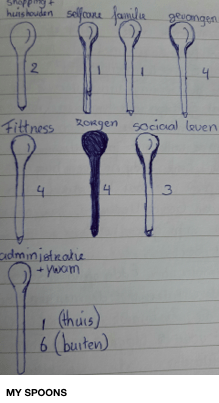A life of pioneering
My name is Heddy de Visser Beckmann. I have been in YWAM 47 years and have pioneered many different ministries like King’s Kids, a ministry among the prostitutes in Brussels, outreach in our Muslim neighbourhood, a free pregnancy centre in Brussels, and YWAM Kerygma ministry in Belgium. I was part of the elder’s circle for North Africa and together with my husband we organized many SOFM/FIS schools for North Africa. I am married and we have 4 children and 7 grandchildren. (Sadly, we lost 2 of our children). My main occupation now is working as chaplain in a high security prison in Belgium.
Coming alongside
The first comment I want to give is that I find coaching or mentoring somewhat confusing terms for a Dutch speaker that I am.
‘Coming alongside’ someone I find easier to understand. It means that I come to support someone in what the person does and to develop together the best qualities that help this person to live an abundant and fulfilled life.
We look at the tools in this person’s toolbox. My husband loves his tools and seems to need ever more of them 🙂 What are the tools that are needed, what needs added or trained? As we listen to the Holy Spirit together and He guides us, both of us are learning.
Chicken gone bad
When I was 21 years old, I went with an outreach team to Morocco, and was made responsible for the kitchen.
For our trip back to the Netherlands, me and my Moroccan translator had bought chicken – an adventure in itself!

We had prepared the chicken and nicely packed it in cool boxes. I was so looking forward to presenting this lovely meal to our group of 40 people!
Along the way we camped somewhere in Spain and, as I opened the boxes, a foul smell hit my nose. I had put them too warm in the boxes and the chicken had gone bad!!
I was so angry with myself and ashamed that I went hiding in my tent! Soon the leader Wilbert tapped on my tent and said: “Heddy if you cannot deal with mistakes you can never be a good leader!”
This was a lesson for the rest of my life in YWAM! A great coaching, mentoring, coming alongside moment for me!!
Friendly and gentle, but also touching the place where I was hurting!
Spoons
I think for many of us, and especially leaders, it is hard to acknowledge: “yeah actually I could use some support”.
Two years ago, I had a heart attack with cardiac arrest in Malta. It turned my life upside down but praise the Lord for good friends! Veta, our member care person for North Africa, came alongside and supported me in working through this episode of my life.
She taught me an important lesson.
“You have a certain amount of energy per day that you can spend. Let’s call them spoons,” she said. “You can use them all up in one morning or divide them over the day, so that in the evening you still have some energy left to be social or to enjoy the last hours of the day.”
I made a drawing during that meeting.
The words are in Dutch so I will mention the different spoons here: Household, self-care, family, prison, fitness, worries, social life, admin and YWAM.

Boundaries
Over the years I’ve had the privilege to walk beside many highly motivated young leaders who were eager to grow and not too stubborn.
Different personalities grow in different ways and environments. But for all of us there are or will be moments that we can use someone alongside.
In the beginning of YWAM the word mentoring was sometimes abused to the point that people even had to submit to their leader if they could have a ‘special relationship’ with someone. This was too much coming into people’s private sphere, which makes some people afraid to trust, possibly because of abuse in this area or because authoritarian leadership in their lives or other circumstances.
So, for these people and also anyone else I would advise: When you do ask someone, put some boundaries in place (you can even do this during the process)
1.What do you expect?
2.What are the subjects you want to bring up?
3.How much time do you want to spend, how often?
4. Is it for free or do you pay?
5. Are there areas you do not want to talk about?
6. What are your goals?
7.You want to be able to stop the support if it doesn’t work for you.
Debrief
In February this year I will have a week of debrief. I have asked for it to be in my own language and to evaluate the 47 years in YWAM. I want to take away what I have learned, how I have grown, and what I can take with me into the future. Never too old to learn!
My two favourite lessons I have learned In YWAM and still use and teach today:
– I can only be a leader when I serve those I lead. So being humble and learn from others frees me to take risks!
– As soon as I am a leader of something, I should look for someone to replace me and to train/coach/ mentor this person!!
May God bless you in the place He has called you to serve!



